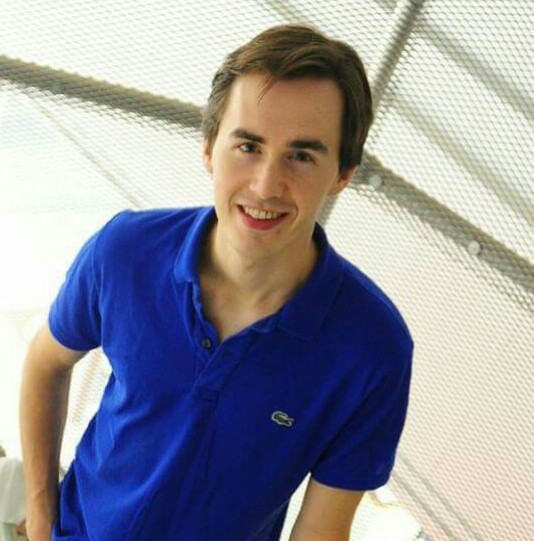
The most valuable aspects of my experience at UMD have been the relationships, both professional and personal, that I have developed and will maintain beyond the halls of the department.
We chatted with Travis to learn more about his experiences in the MSE graduate program and to find out why he chose the University of Maryland for his studies.
Who is your advisor, and in which lab do you work?
Professor Mohamad Al-Sheikhly is my advisor and I work in his Laboratory for Radiation and Polymer Science.
Please describe your research.
I have two areas of research currently. The research for my dissertation is focused on developing novel, radiation-grafted co-polymers that are capable of extracting uranium from seawater. Perhaps surprisingly, uranium exists in the world’s oceans at a concentration of about 3 ppb, however the total quantity of uranium in the oceans is about 4.5 billion tons, meaning it could serve as a viable resource for this element. My other research focuses on elucidating the radiation chemistry of alpha particles in water containing borate. I use a neutron beamline at the National Institute of Standards and Technology to irradiate a borate solution with neutrons and then study the molecular products of the reactions that occur.
What prompted you to join MSE, and more specifically, to engage in the research you’re currently doing?
In my undergraduate institution I studied nanoparticle synthesis for the purpose of fabricating nanoparticle-based solar cells. This led to an interest in not only materials science, but also research related to the advancement of energy production. I chose my current research because of my desire to move towards working in and advancing the field of nuclear science and energy.
Why did you choose UMD, and more specifically, engineering?
I chose UMD for a number of reasons: I wanted to carry out research on technologies related to nuclear energy, I wanted to work with the University of Maryland’s radiation facilities, and I loved that UMD was a short distance away from a number of the nation’s most prestigious research and policy institutions. I moved towards engineering rather than sticking with pure chemistry to expand my expertise beyond pure science because I believed this would provide greater flexibility for my career after I graduate.
What is the best thing about your on campus experience, and what are any challenges that you had to overcome?
The most valuable aspects of my experience at UMD have been the relationships, both professional and personal, that I have developed and will maintain beyond the halls of the department. My most memorable moments during my time here have been those that I’ve shared with my fellow graduate students both in and out of the lab. The largest challenges I have faced so far have been the qualifying exam, my proposal, and learning to work effectively with my advisor.
What would you like to do after completing your studies at UMD?
After I complete my studies at UMD I am looking to work either at one of the national laboratories or a company to further develop my knowledge and research experience working with nuclear materials, or to work at either a company or NASA on projects focused on radiation effects on materials for space applications.
What advice do you have for undergraduates considering graduate studies in MSE?
Undergraduates considering graduate studies in MSE should appreciate the fact that MSE stands for Materials Science and Engineering. All of my colleagues have had both science and engineering problems to work with during the course of their research. Definitely take advantage of and learn from both types of problems.
When you're not in class or in the lab, how do you spend your time?
When I’m not in class or the lab, I have a number of activities and responsibilities to keep me busy. I’ve captained a number of department IM teams for graduate students. I’m the captain of a local squash team that plays against a number of other clubs in the area. I’m the membership chair of the local section of the American Nuclear Society. Finally, I’m also the communications chair of the DC alumni chapter of my undergraduate university. Reading, playing video games, and exploring DC also get tossed in there every once in a while, too.
Travis received his Ph.D. in December 2017.
Top